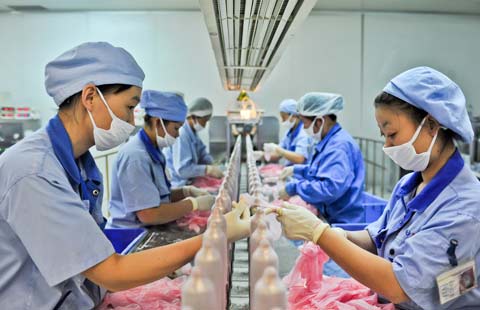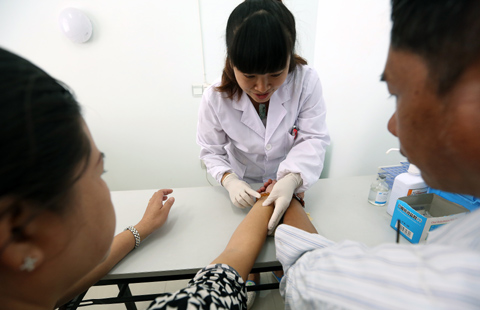Wuhan supports young owners of startups
By Liu Kun in Wuhan and Su Zhou in Beijing (chinadaily.com.cn) Updated: 2014-07-16 15:36Liu Xinyi, the 23-year-old owner of a startup in Wuhan, laughs at Chinese dialect jokes on a mobile phone app she developed. Hers is not a one-man show. More than 100,000 users from all over the country log in and share dialect jokes on the app every day.
"I expect the user number will reach 5 million by the end of this year," Liu said.
She plans to add more functions to her dialect app and launch more apps in the future. In her workshop, tens of other young people are helping her achieve those goals.
Liu's confidence comes from a support program called Qingtong, designed by the Wuhan city government. In Chinese, "qing" means youth and "tong" means parasol tree, and the program helps young people establish their own businesses.
Liu won 190,000 yuan ($30,600) from a startup competition hosted by the Qingtong program three months ago. Another nine people stood out in the competition, sharing prize money that totaled 1 million yuan.
Liu said it was a "sweet kiss" from the angel investors because she got the opportunity to talk with other startup owners and receive advice from coaches in addition to the financial support.
The program reflects the local government's ambition: to turn Wuhan, the capital of Hubei province, into a paradise for millions of students from its 79 universities to create their own business.
In August 2013, the Wuhan city government released a document to support young owners of startups. It has offered 10 favorable policies for college students or graduates within the past five years, covering such things as accommodation and finance. It is also considering adding a startup project to the credit system for students on campus.
The fund set up by the local government has now reached 300 million yuan. According to the Wuhan Science and Technology Bureau, nine startup companies received 170 million yuan in investment in the first round.
Wuhan also set aside 20 millon yuan as a special fund for college students, aimed at supporting creative technology programs within incubators.
For the past three years, the local government has invested 440 million yuan per year to build creative incubators, which laid the foundation for the Qingtong program.
There is an accompanying program that promotes startup projects every month among investors.
The promotions have attracted many famous angel investors, such as Xu Xiaoping, founder of New Oriental Education and Technology Group.
Wang Qingqi, a senior student who is working on an online education project, took part in one such event, during which he approached the mayor of Wuhan, Tang Liangzhi.
He asked Tang to try his online project, telling him, "For example, you can open a course called ‘How to be a mayor'."
Tang was amused and answered, "I can try this".
"Being a mayor is very laborious, I think it is good to be an entrepreneur," Tang said.
The young student impressed angel investors, including Jiang Yu, who offered Wang 300,000 yuan immediately.
Tang said one of his priorities is youngsters studying at Wuhan universities.
"Young people with creative minds are very important for city development. What we can do is to provide you the best environment to implement your ideas," Tang said.
- More Chinese set to travel to Brazil
- Universities to guarantee admission equality
- Beijing calls for 3:1 ratio of bus and subway fares
- HK chief takes first step toward universal suffrage
- One-child rule relaxed for military staff
- Former political advisor expelled from Party
- Water, water, every where
- Tokyo's request is a media ploy
- Anti-graft teams investigate 'naked officials'
- Guangzhou widens protection list







